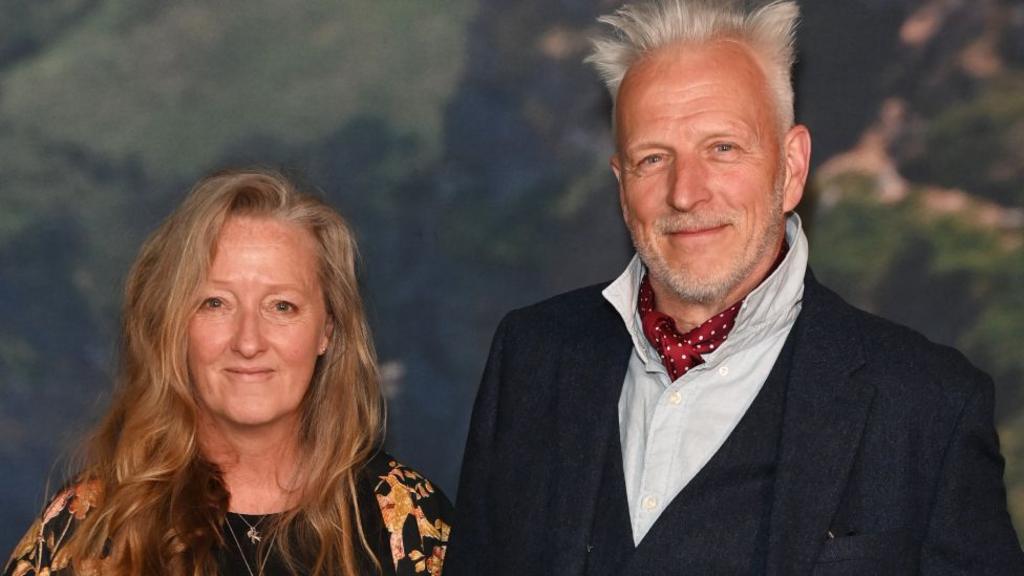Author Raynor Winn is facing accusations of potentially fabricating or misrepresenting certain elements within her best-selling book, “The Salt Path.”
The 2018 book, which was recently adapted into a film, chronicles the story of a couple who embark on a 630-mile trek along the South West Coast Path after losing their home.
An investigation by The Observer alleges that Winn’s account of her husband’s illness and the circumstances surrounding their home repossession may contain inaccuracies.
Winn has responded to The Observer’s article, calling it “highly misleading” and stating that she and her husband are pursuing legal counsel. She maintains that the book accurately reflects “the true story of our journey.”
Here’s a summary of the key details:
“The Salt Path” has achieved substantial commercial success, selling over two million copies since its release in March 2018. The film adaptation features Gillian Anderson and Jason Isaacs.
In the book, Winn describes how she and her husband, Moth, suffered significant financial losses due to a failed investment in a friend’s business, leaving them liable for the company’s debts and ultimately leading to the loss of their home.
Around the same period, Moth received a diagnosis of corticobasal degeneration (CBD), a condition typically associated with a life expectancy of six to eight years, according to Winn.
Following their homelessness and Moth’s CBD diagnosis, Winn states that the couple decided to walk the South West Coast Path in 2013.
The book details their completion of the entire 630-mile route, subsisting on limited weekly tax credits and relying on wild camping each night.
It recounts the physical challenges, the rewards of the journey, and their interactions with the public along the way.
The book concludes with the couple finding a new beginning with an offer of accommodation. Winn claims that the walk improved her husband’s health, and he has now lived for 12 years since his diagnosis.
Winn has since authored two additional books that explore themes of walking, nature, homelessness, and wild camping. A fourth book is scheduled for publication later this year.
The Observer’s investigation alleges that the couple lost their home in North Wales due to Winn defrauding her employer of £64,000, contrary to her initial claim of a poor business deal.
Reportedly, the couple borrowed £100,000 at an 18% interest rate from a relative, using their house as collateral, to repay the funds she was accused of stealing.
The Observer reports that the couple also had a £230,000 mortgage on the property, bringing their total debt above the house’s value.
The home was then reportedly repossessed after a lawsuit to recover the borrowed money.
The Observer also noted that the couple owned a house in France but said the property was uninhabitable, and villagers claimed the couple stayed in caravans on the land rather than in the house.
Additionally, The Observer said they consulted medical experts who expressed skepticism about Moth’s CBD diagnosis, citing his extended survival, the absence of acute symptoms, and the apparent reversal of symptoms.
The report also indicates that Raynor and Moth Winn are pseudonyms.
Following the publication of The Observer’s article, the PSPA, a charity that supports individuals with CBD and has collaborated with Raynor and Moth Winn, stated that “too many questions currently remain unanswered” and that it had “made the decision to terminate our relationship with the family.”
Winn has also withdrawn from the upcoming Saltlines tour, where she was scheduled to perform readings alongside the Gigspanner Big Band during a series of UK dates.
A statement from Winn’s legal team said that the author was “deeply sorry to let down those who were planning to attend the Saltlines tour, but while this process is ongoing, she will be unable to take part.”
In a statement released through literary agents Graham Maw Christie, Winn stated: “Today’s Observer article is highly misleading.”
“We are taking legal advice and won’t be making any further comment at this time.”
The statement continued: “The Salt Path lays bare the physical and spiritual journey Moth and I shared, an experience that transformed us completely and altered the course of our lives.”
“This is the true story of our journey.”
The BBC has also reached out to Penguin, the book’s publisher, for comment.
A spokeswoman for Number 9 Films and Shadowplay Features, the production companies behind the film adaptation, released a statement to Hollywood trade publication Deadline stating: “There were no known claims against the book at the time of optioning it or producing and distributing the film.”
Their statement affirmed that the movie is “a faithful adaptation of the book that we optioned” and added, “we undertook all necessary due diligence before acquiring the book.”
“The allegations made in The Observer relate to the book and are a matter for the author Raynor Winn,” the statement concluded. “We have passed any correspondence relating to the article to Raynor and her agent.”
The film’s stars, Anderson and Isaacs, have also been contacted for comment. BBC Film, which contributed to the financing and executive production of the movie, has declined to comment.
The film adaptation has grossed approximately $16 million (£11.7 million) at the global box office. The movie is yet to be released in Germany and France, and a distribution agreement in the United States is reportedly pending, according to Deadline.
Melanie Seiver is author of the Polly Pin books, which are based around sewing.
KCC says the move came after a “concerned member of the public” contacted them.
From a nine-month trek to a 20,000-mile motorcycle odyssey, these books will transport you across continents and encourage you to see the world differently.
Jason said he developed the personalised app to help children gain confidence through reading.
“Life-changing” for some, hateable to others, Miranda July’s wildly successful erotic novel All Fours about the female midlife experience has dominated the conversation.

